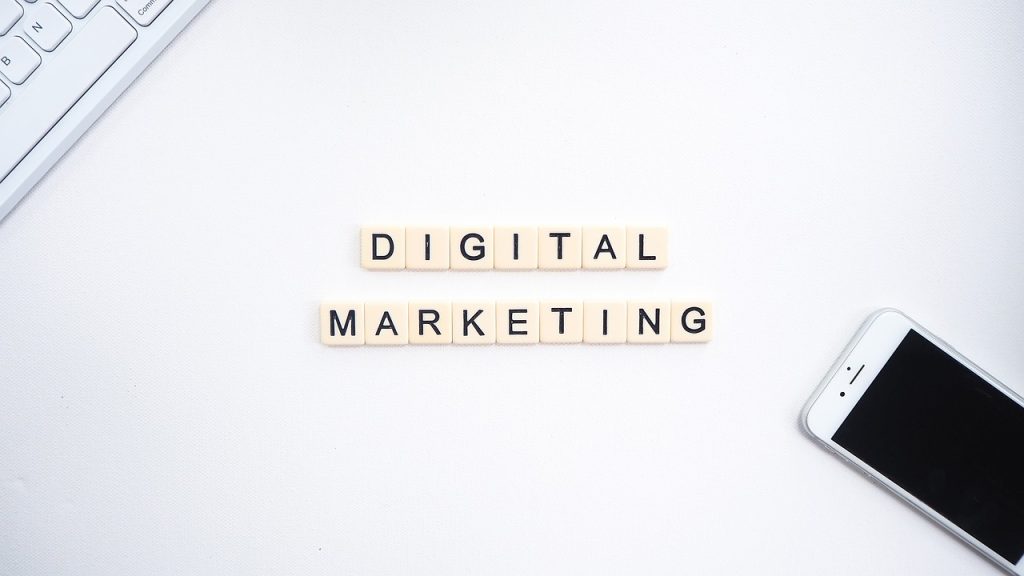Introduction
Digital marketing has transformed the way businesses connect with their audiences, leveraging digital channels to reach, engage, and convert prospects into customers. In today’s interconnected world, digital marketing encompasses a diverse array of strategies and tactics that empower businesses to build brand awareness, drive traffic, and generate sales. This article explores the fundamentals, strategies, benefits, challenges, and future trends of digital marketing.

Understanding Digital Marketing
Digital marketing refers to the use of digital channels, platforms, and technologies to promote products, services, or brands to target audiences. Unlike traditional marketing methods that rely on print media, television, or direct mail, digital marketing leverages the internet and online tools to deliver messages to potential customers in real-time, measure effectiveness, and optimize campaigns based on data-driven insights.
Key Components of Digital Marketing
- Search Engine Optimization (SEO): SEO involves optimizing websites and content to rank higher in search engine results pages (SERPs) organically. It focuses on improving visibility and driving organic traffic by targeting relevant keywords, enhancing website structure, and acquiring backlinks.
- Content Marketing: Content marketing involves creating and distributing valuable, relevant, and consistent content to attract and retain a clearly defined audience. Content types include blogs, articles, videos, infographics, and podcasts, aimed at educating, entertaining, or inspiring audiences while subtly promoting products or services.
- Social Media Marketing (SMM): SMM utilizes social media platforms like Facebook, Instagram, Twitter, LinkedIn, and TikTok to connect with audiences, build brand awareness, and drive engagement. It involves posting content, running ads, and engaging with followers to foster relationships and promote offerings.
- Email Marketing: Email marketing involves sending personalized messages and promotional content to a targeted list of subscribers. It is effective for nurturing leads, maintaining customer relationships, and driving conversions through segmented campaigns, newsletters, and automated workflows.
- Pay-Per-Click Advertising (PPC): PPC advertising allows businesses to bid for ad placement in search engine results or on websites. Ads are displayed to users who search for relevant keywords or visit specific sites, with advertisers paying a fee each time their ad is clicked. Popular platforms include Google Ads and Microsoft Advertising.
- Affiliate Marketing: Affiliate marketing involves partnering with influencers or affiliates who promote products or services in exchange for a commission on sales generated through their referrals. It leverages the influencer’s credibility and audience reach to drive traffic and conversions.
Benefits of Digital Marketing
- Global Reach: Digital marketing enables businesses to reach a global audience, breaking down geographical barriers and expanding market reach beyond traditional boundaries.
- Targeted Advertising: Digital marketing allows precise targeting based on demographics, interests, behaviors, and online activities, ensuring ads are shown to the most relevant audience segments.
- Measurable Results: Unlike traditional marketing, digital campaigns provide real-time analytics and performance metrics. Marketers can track key performance indicators (KPIs) such as website traffic, conversion rates, ROI, and customer engagement to optimize strategies and improve outcomes.
- Cost-Effectiveness: Digital marketing often requires lower investment compared to traditional advertising methods like print or TV ads. Businesses can allocate budgets more efficiently, adjusting spending based on campaign performance and objectives.
- Personalization: Digital marketing enables personalized communication with customers through tailored content, recommendations, and offers based on user preferences and behaviors, enhancing customer experience and loyalty.

Challenges in Digital Marketing
Despite its advantages, digital marketing presents several challenges that marketers must navigate:
- Competition: The digital landscape is highly competitive, with businesses vying for attention in crowded markets. Standing out requires creativity, strategic positioning, and continuous innovation.
- Ad Blocking: Ad blockers and consumer privacy concerns pose challenges for digital advertisers, limiting the reach of display ads and requiring transparent data practices and compliant strategies.
- Algorithm Changes: Platforms like Google and social media networks frequently update their algorithms, affecting organic reach, ad placements, and content visibility. Marketers must stay updated and adapt strategies accordingly.
- Data Privacy Regulations: Regulations such as GDPR and CCPA impose restrictions on data collection, usage, and storage, impacting digital marketing practices and necessitating compliance measures.
- Technological Advancements: Rapid advancements in technology and consumer behavior necessitate constant adaptation and learning. Marketers must embrace new tools, trends, and platforms to remain competitive and effective.
Future Trends in Digital Marketing
- Artificial Intelligence (AI) and Machine Learning: AI-powered tools and algorithms will enhance personalization, predictive analytics, chatbots, and automation, optimizing customer interactions and campaign performance.
- Voice Search Optimization: With the rise of smart speakers and voice assistants like Siri and Alexa, optimizing content for voice search queries will become crucial for SEO and content strategies.
- Video Marketing: Video content continues to dominate online consumption, with platforms like YouTube and TikTok driving engagement. Businesses will invest more in video production, live streaming, and interactive video formats.
- Augmented Reality (AR) and Virtual Reality (VR): AR and VR technologies will revolutionize consumer experiences, allowing businesses to create immersive, interactive marketing campaigns and virtual shopping experiences.
- Ethical and Sustainable Marketing: Consumers increasingly value brands that demonstrate social responsibility, sustainability, and ethical practices. Authenticity and transparency will be key in building trust and loyalty.

Conclusion
Digital marketing has redefined how businesses engage with audiences, leveraging technology to deliver targeted, measurable, and impactful campaigns. By embracing SEO, content marketing, social media, email campaigns, and innovative digital strategies, businesses can achieve broader reach, higher engagement, and increased conversions in today’s competitive landscape. Despite challenges such as competition, ad blockers, and regulatory changes, the evolution of AI, voice search, video content, and immersive technologies presents opportunities for marketers to innovate and connect with consumers on deeper levels. As digital marketing continues to evolve, staying agile, data-driven, and customer-centric will be essential for achieving sustained success and growth in the digital era.


